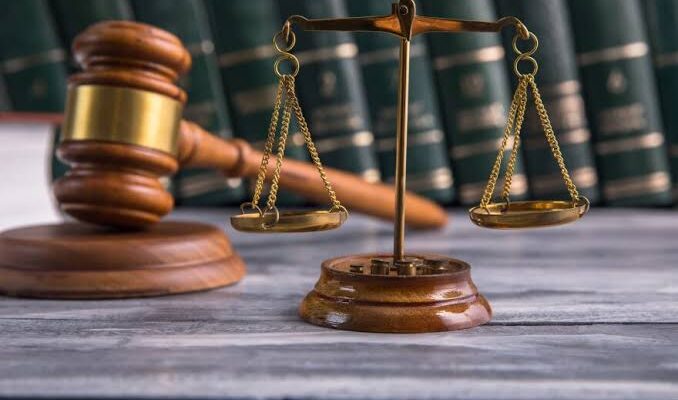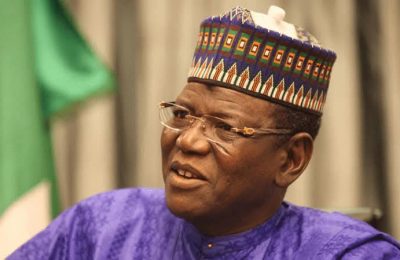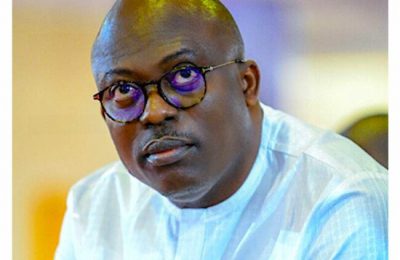
Yejide Gbenga – Ogundare
Justice Y. Bogoro of A Federal High Court sitting in Ikoyi, Lagos has given an order of injunction, restraining the Economic and Financial Crimes Commission (EFCC) whether by themselves or through their agents and privies from further inviting, arresting, detaining, harassing or intimidating a legal practitioner, Emeka Ozoani (SAN) based on a matter involving his client or similar facts in relation to a suit delineated FHC/L/CS/964/22, unless new facts emerge implicating him.

The court also directed EFCC to tender a formal apology to Ozoani (SAN) for the breach/threatened breach of his fundamental rights as guaranteed by the Constitution of Nigeria, 1999.
Justice Bogoro was giving a ruling on a motion on notice brought pursuant to Sections 34, 35, 37, 41 and 46 of
the Constitution of the Federal Republic Of Nigeria, 1999 (as Amended) and articles 2, 3 (1) & (2), 3, 5, 6 and 7 of the African Charter on Human and
Peoples Rights (ratification and enforcement). Act Cap 9, Laws of the Federation of Nigeria, 2004, Articles 1, 3, 5, 9 and 13 of the Universal Declaration of Human Rights.
The suit was filed by Emeka Ozoani (SAN) against three people; the Economic and Financial Crimes Commission (EFCC), Emeka Okonjo and Keves Global Leasing Limited praying the court for some reliefs bordering on unlawful violation of the his fundamental rights to liberty
Justice Bogoro in his ruling said, “I have come to the conclusion that the Applicant has made a good case against the respondents. The applicant has
established his case that there is genuine fear of the likely infraction on his
Fundamental Human Rights. I thereby find the EFCC and Emeka Okonjo liable.
“I have found that though it was upon Keves Global Leasing Limited’s petition the EFCC and Emeka Okonjo acted. I have not found Keves Global Leasing Limited liable. I have not found where it instigated the first and second respondents to breach the applicants rights by only reporting a case of conspiracy and criminal diversion
of the third respondents money against the four staff of Aiteo Company.
“In the same wise, I find that this Court has jurisdiction to hear and determine this suit. I hereby enter judgment for the applicant as against the first and second respondents (EFCC and Emeka Okonjo), ” he held.
The court further declared that the invitation of Ozoani via a letter referenced
CR:3000/EFCC/LS/EIFS/TB/02-22/VOL.2/225 of 24th April, 2022 by the EFCC at the behest and instigation of Keves Global Leasing Limited is unlawful and a violation. of Ozoani’s fundamental rights to liberty and dignity of his person as guaranteed under Sections 34, 35, 37 and 46
of the Constitution of the Federal Republic of Nigeria, 1999 (as
Amended), Articles 2, 3, (1) & (2), 4, 5, 6, and 7 of the African Charter.
Thw court also declared that the invitation of the Ozoani via a letter referenced
CR:3000/EFCC/LS/EIFS/TB/02-22/VOL.2/225 of 24* April, 2022 by EFCC at the behest and instigation of Keves Global Leasing Limited and which act is intended to be carried out as a decoy to recover debt owed by the Applicant’s client (Aiteo Eastern E & P Company Ltd) to the 3rd Respondent are unconstitutional, wrongful, illegal, unlawful and constitutes a gross violation of his right to privacy, personal liberty, human dignity and freedom of movement as guaranteed under
Sections 34, 35, 37, 41 and 46 of the Constitution of the Federal Republic of Nigeria, 1999 (as Amended).
It also declared that the predominant purpose of the invitation letter referenced CR:3000/EFCC/LS/EIFS/TB/02-22/VOL.2/225 and dated 24th April, 2022 but served on the Applicant on the 25th May, 2022 by the EFCC on Ozoani is to hound, harass and intimidate him from further providing legal services to his client, Aiteo Eastern E & P Company Ltd, in respect of the petition written by the RespondentKeves Global Leasing Limited and is therefore unconstitutional, unlawful, null and void, and of no effect whatsoever, being a gross violation of the Applicant’s fundamental rights as guaranteed by the Constitution of the Federal Republic of Nigeria, 1999 (as Amended).







